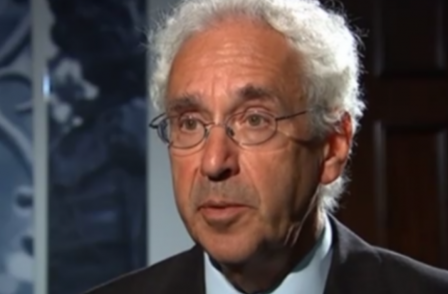
The Independent Press Standards Organisation has called for evidence from the Telegraph and others on allegations that the title has allowed commercial considerations to influence editorial.
IPSO chairman Sir Alan Moses told MPs today that allegations raised by former Telegraph chief political commentator Peter Oborne would be discussed at the next meeting of the regulator’s board.
And he said that ahead of that meeting he will be seeking information about the matter from Oborne, other journalists and the Telegraph itself.
Moses said the Telegraph case raises “really fundamental issues about protection of the freedom of editorial and journalists’ judgment".
Oborne revealed last week that he had resigned from the Telegraph on a point of principle and that he felt the paper had declined to publish negative stories about HSBC for fear of upsetting it as an advertiser.
The Telegraph said Oborne's claims were "unfounded".
Moses told MPs on the Commons media select committee: "The really important question is how we carry that forward with some meaningful rule in the [Editors’] Code.
"It’s very difficult to devise a rule that says you’re in breach of it if you fail to publish something."
He said there was going to be a discussion between himself and other members of the Editors' Code committee about whether the code should be changed, adding: "At this moment there is no rule in the code, or any proposed code, that says you are in breach if you fail to publish something."
IPSO chief executive Matt Tee said that so far there have been no complaints made about the issues raised by Oborne.
Asked by Paul Farrelly MP (Labour) whether IPSO would consider calling in Oborne and Telegraph chief executive Murdoch MacLennan to for a one-day hearing, Tee said: “We could do that. But we would be doing it without having any sanction at the end…
“It wouldn’t be standards investigation but it might well lead to potential changes to the code.”
Farrelly said the fact that long-standing chairman of the Editors’ Code Committee Paul Dacre remained in place gave the impression that nothing had changed under the new system of regulation.
In the wake of the Leveson report of 2012, five non editors now sit on the code committee. They are Moses and Tee plus three lay members revealed last week as Christine Elliott, David Jessel and Dr Kate Stone. The other ten members of the committee are all serving editors.
Two years ago the Code Committee launched a wide-ranging consultation on how the Editors’ Code should be changed in the wake of the Leveson Inquiry.
No action has been taken on that consultation pending the formulation of the new code committee.
Press Gazette’s response to that consultation suggested that the code should be changed to provide journalists with protection from commercial pressure.
Talking in general terms Moses said: "We are determined to be, for the first time, a regulator. The PCC was not a regulator, it was a complaints handler and we wish to be an independent regulator.
"The press said they wanted an independent regulator and we are going to hold them to that and we believe that we can achieve that."
He added that it was his belief complaints were being dealt with more speedily and taken "far more seriously than previously".
Email pged@pressgazette.co.uk to point out mistakes, provide story tips or send in a letter for publication on our "Letters Page" blog
